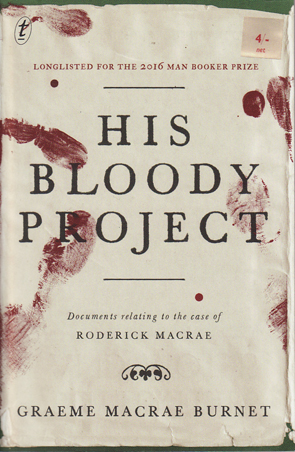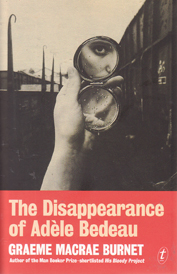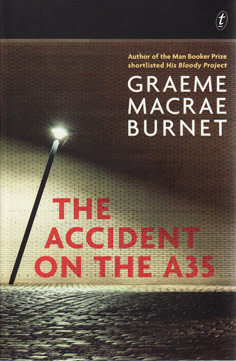A few months back I read Alias Grace by Margaret Atwood. I was reminded of Alias Grace as I read this book. Both books feature a gruesome 19th century murder and both have unreliable narrators whose actions and motivations form the basis for their stories.
Atwood’s story is based on a true crime from 1843, while Burnet’s is based on a supposedly ‘found text’ written by a murderer in 1869. The conceit of the found text and the introduction hints that the murderer Roddy Macrae is an ancestor of the author, although it does say clearly on the title page that this is a novel, not a family history.
Both Alias Grace and His Bloody Project are incredibly well-constructed stories, written in beautiful language. In both of them I could well picture the harsh life of the 19th century. And in both you are still left wondering at the end what really happened.
There is no question in this book of the guilt of Roddy. He openly confesses what he has done and makes no effort to conceal his guilt. The question which remains is why he did it.
The actual murder is of Lachlan MacKenzie and of two others whose identity is concealed until we are some way into the story. Roddy’s advocate persuades him to write down an account of what led him to committing the gruesome murders, and this narrative forms the first part of the book.
Roddy is 17 years old and lives as a crofter in the Scottish Highland village of Culduie. His world is unrelentingly bleak. His dour father routinely beats him and he has no prospect of his world ever improving. His teacher judges him as unusually intelligent and suggests that he could continue his education, and perhaps become a teacher or a minister. Although gratified that his teacher thinks well of him, Roddy thinks that Mr Gillies was mistaken in supposing that such a thing was possible for a son of Culduie
. His world is made harsher by the vindictiveness of Lachlan MacKenzie, first as a bully, and then as the village constable.
The only bright parts of Roddy’s life appears to be his mother and his sister Jetta, both of whom are described as gay and gregarious. After his mother’s death, his sister has to take on the role of mother to their younger siblings. Roddy describes his what happens to her: The gay and charming girl was replaced by a morose, brooding figure, hunched over at the shoulders and clad, at my father’s insistence, in widow’s black.
I thought the book was carefully constructed, with the opening statements about the crime from people who were sympathetic to Roddy pre-disposing me to believe Roddy’s narrative. Then you read the narrative and Roddy seems articulate and intelligent, and his descriptions of the harshness of his life make it hard to not sympathise with him. But then comes the medical reports, with descriptions of what was actually done to the victims. One of these particularly had me suddenly questioning the belief I had had in Roddy’s narrative. I started to realise just how unreliable a narrator Roddy is, and started thinking about parts of his story in a different light. I remembered an episode of Criminal Minds where they talked about a triad of behaviours that were indicators of a homicidal psychopath.
This is an incredible readable, once I started it, I found it hard to put down. Most of my reading is done on my daily commute on the train, so I was frequently frustrated at having to leave the story as my station approached. The story is fascinating, and one that I’m still thinking back over, trying to make up my mind about a few days after finishing it. Highly recommended.
Other Books by Graeme Macrae Burnet Reviewed on the Website

 RSS Feed
RSS Feed Facebook
Facebook Instagram
Instagram YouTube
YouTube Subscribe to our Newsletter
Subscribe to our Newsletter





No one has commented yet. Be the first!